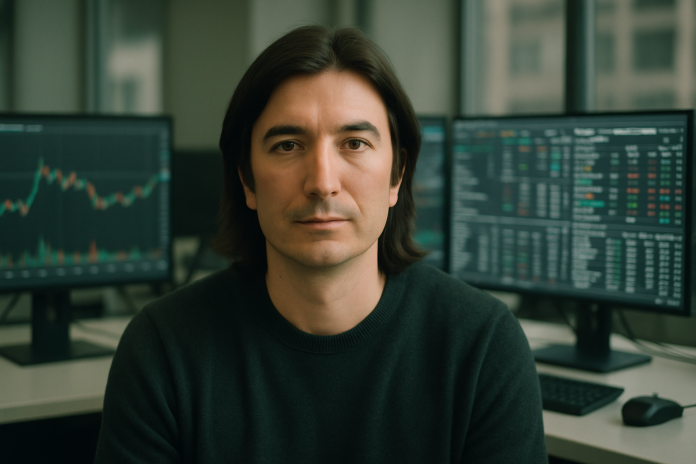Quick Take
- Robinhood CEO Vlad Tenev assures AI will assist, not replace human traders (*Bloomberg Wealth*)
- Platform added to S&P 500 in September, replacing Caesars Entertainment
- Company expands into NFL and college football prediction markets for user engagement
- Tenev compares AI adoption to mobile/cloud era transformation across businesses
Robinhood CEO Vlad Tenev emphasizes that artificial intelligence will serve as a trading assistant rather than replacement, as the platform achieves S&P 500 inclusion following strategic market expansions.
Tenev’s strongest assurance comes amid growing concerns about AI automation in financial services. “Humans will ultimately call the shots,” he stated in his Bloomberg Wealth interview, emphasizing that passion-driven investment decisions remain central to trading’s appeal.
AI as Trading Assistant, Not Replacement
The CEO positions AI’s role in trading as fundamentally supportive, drawing parallels to the digital transformation era. While acknowledging AI tools enhance productivity across operations, Tenev maintains human oversight remains paramount in investment decisions.
This approach reflects broader fintech industry dynamics, where companies balance technological efficiency with traditional decision-making processes. Tenev’s vision suggests AI will augment human capability rather than pursue full automation.
Strategic Market Positioning Through S&P 500 Entry
Robinhood’s September addition to the S&P 500, replacing Caesars Entertainment, marks a significant milestone in the company’s evolution from market disruptor to established financial services player. This inclusion demonstrates substantial growth and market influence within the fintech sector.
The S&P 500 entry validates Robinhood’s business model and positions the platform alongside traditional financial institutions, signaling investor confidence in its long-term viability and market approach.
Platform Diversification Through Sports Prediction Markets
Beyond traditional trading services, Robinhood’s expansion into NFL and college football prediction markets represents strategic diversification. This move complements the platform’s social media features where traders share insights and trading strategies.
The sports prediction market entry demonstrates adaptive strategy execution, potentially attracting new user segments while maintaining core trading functionality. This diversification approach mirrors broader industry trends toward comprehensive financial engagement platforms.
Business Implications for Financial Technology
Tenev’s AI predictions align with industry-wide transformation patterns, where companies integrate artificial intelligence while preserving human decision-making elements. This balanced approach addresses both technological advancement opportunities and user experience considerations.
The emphasis on AI assistance rather than replacement suggests sustainable growth strategies that maintain user engagement while improving operational efficiency. Robinhood’s innovations exemplify this AI-driven evolution, reinforcing human-technology collaboration in financial services.
Robinhood’s strategic positioning through S&P 500 inclusion, combined with platform diversification and measured AI integration, demonstrates a comprehensive market approach balancing innovation with established financial service principles.




